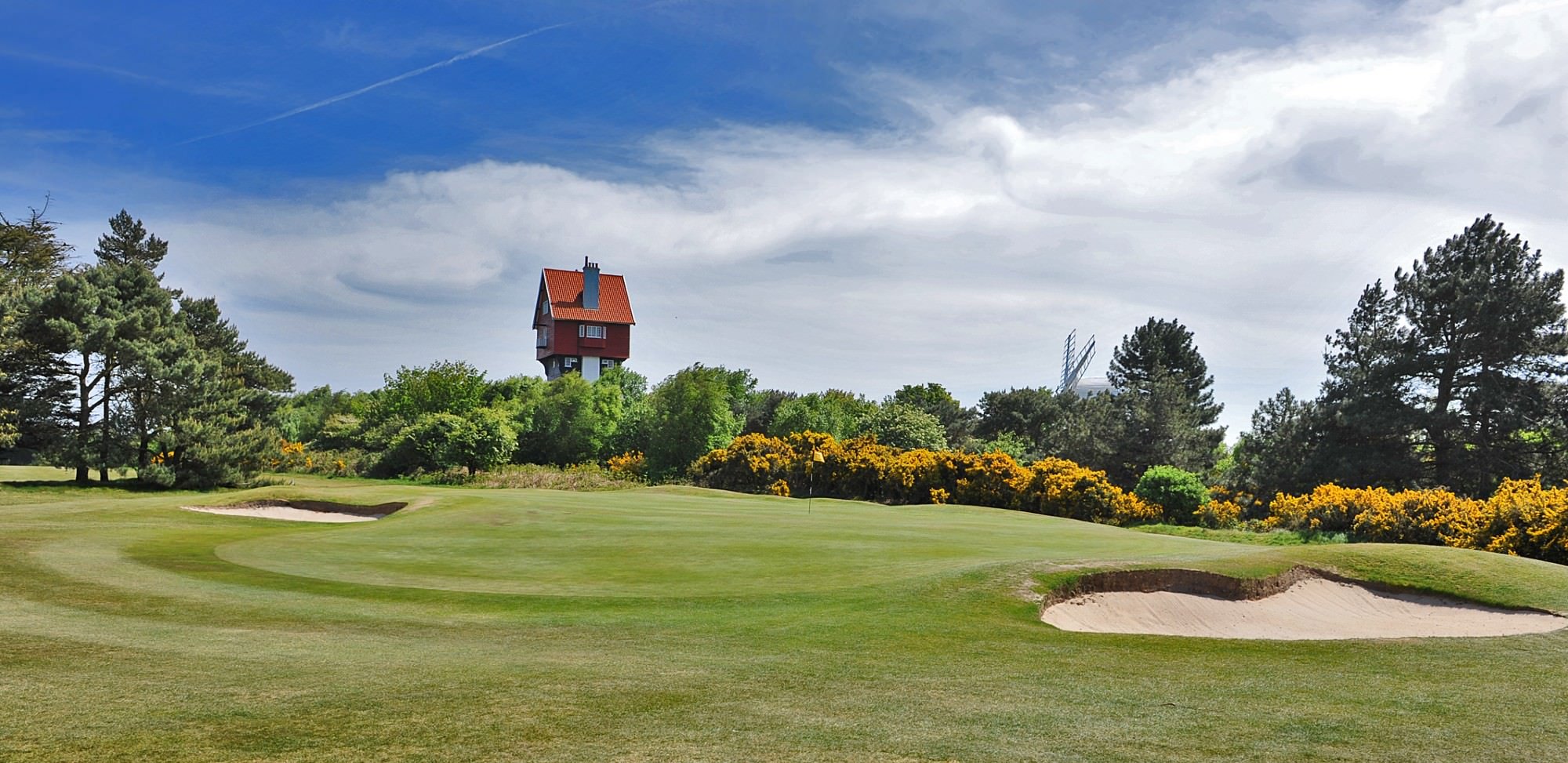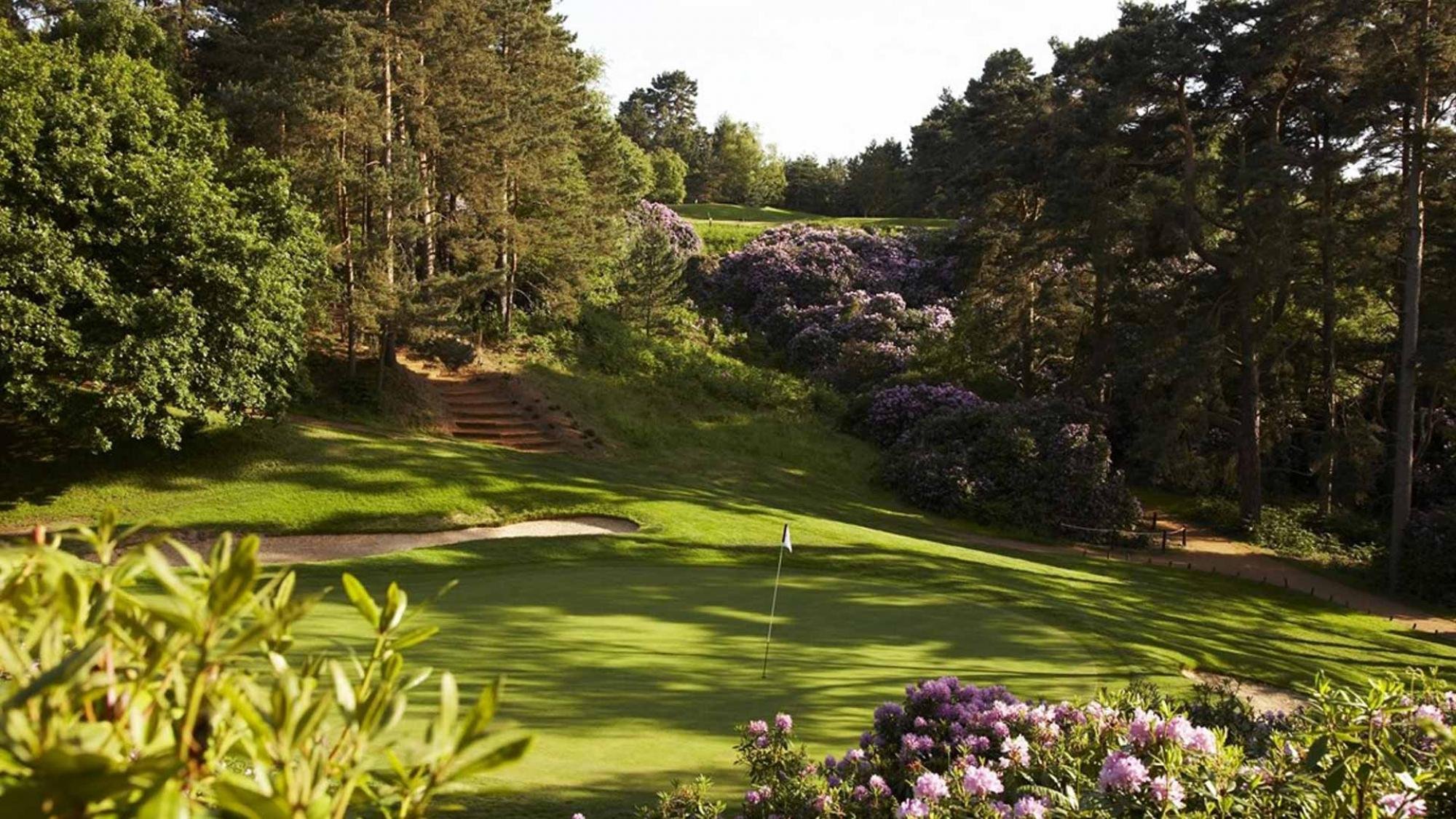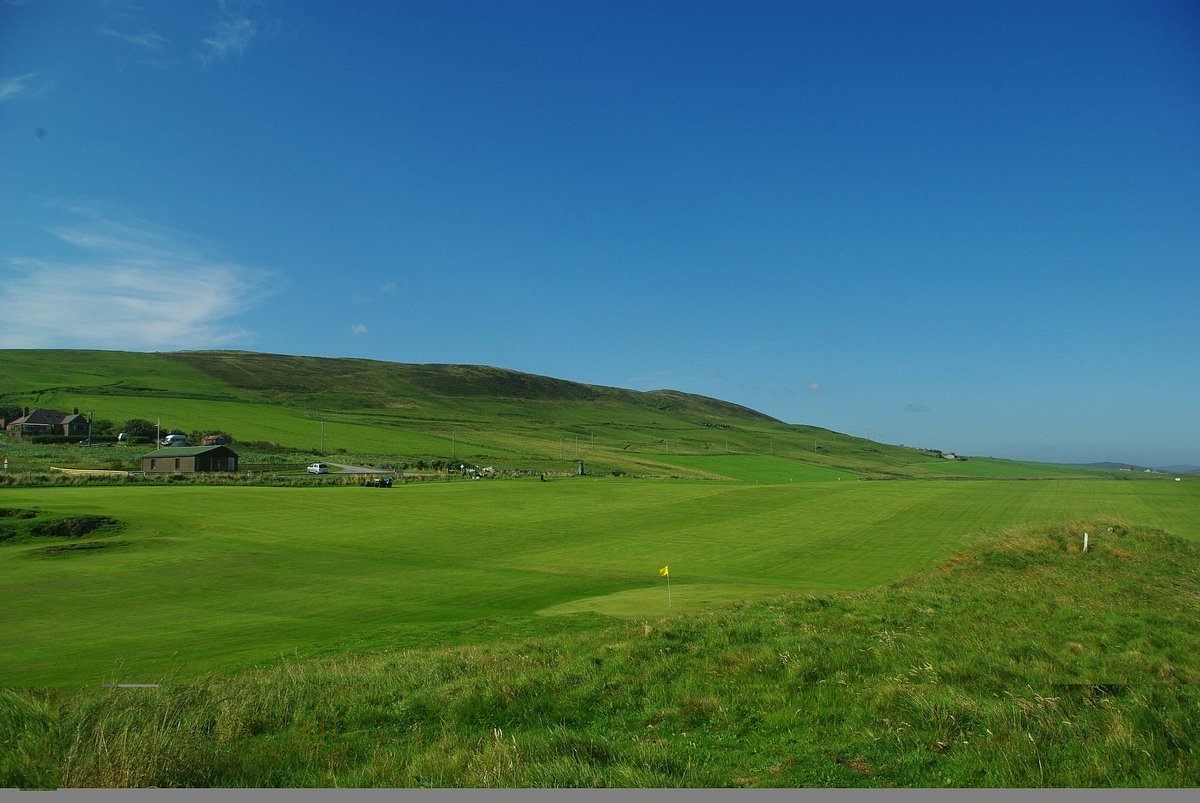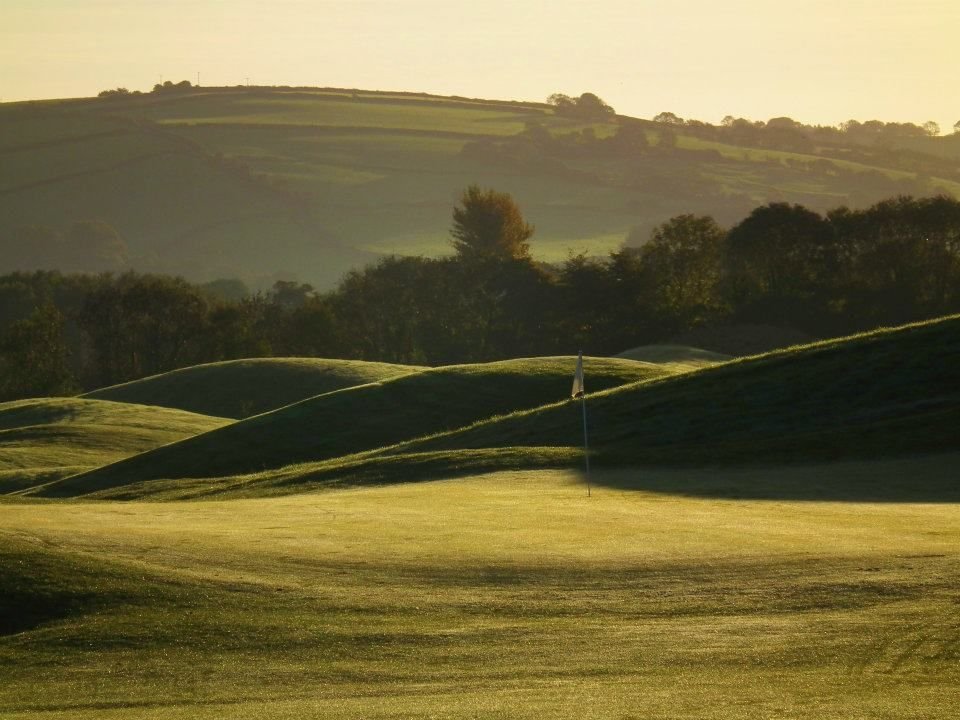Top 10 eco-friendly golf courses in the UK (2023)
Golf courses and sustainability may not seem like the most obvious pairing, the truth is that golf courses do have significant impacts on the environment, both good and bad.
In recent years, many UK golf courses have been working hard to ensure that impact is positive, leading the way in sustainable practices and demonstrating that it is possible to balance the needs of golfers with the needs of the environment. From water management and habitat conservation to waste reduction and energy efficiency, these courses are setting the standard for eco-friendly golf.
Read on to take a look at some of the top sustainable golf courses in the UK and explore the initiatives they've implemented to protect the environment.
Top sustainable golf courses in the UK
Gillyflower Golf
At the top of our list, we’ve put… ourselves.
We’re extremely proud of everything we do at Gillyflower to keep our environmental impact to a minimum and where we can, to be a positive influence on the landscape around us. We’re not claiming to be perfect, but we are committed to continuing to take steps on a journey towards a greener future for golf.
Below are a few of our favourite ways we’re looking after our lands and the critters that exist alongside us.
Seaweed based fertilizer
We all know that too much of a good thing can be disastrous and chemical based fertilisers are no different. They’re notorious for damaging ponds and rivers, causing huge algae blooms and killing wildlife. That’s why we only use natural, seaweed fertilisers to keep our greens looking vibrant and healthy. With naturally lower amounts of nitrogen and phosphorus (key culprits in the damage fertiliser does to waterways) and containing a horde of bio-stimulants and hormones which promote plant growth and stress resistance, seaweed is a sustainability no brainer.
Since implementing this policy, we’ve seen kingfishers and cormorants return to nearby rivers and our course lake, Loch McVie.
Tree planting
We’ve got to hold our hands up and say that we’re not perfect, we still use fossil fuels to power the machinery we use on the course. We are, however, offsetting that extra carbon by planting thousands of trees across the course and the land we manage. From cherries and walnuts to plum and apple trees, the Gillyflower course is teeming with a charming medley of edible fruit and nut trees. Every single one helps lock up carbon from the atmosphere, gives the course a dash of colour and provides a home for local wildlife. All those nuts and berries across the course also help feed birds and animals, and occasionally the hungry golfer out for a round!
Expanded rough
On the topic of biodiversity, one of the elements that makes Gillyflower Golf such an interesting course to challenge yourself against is our areas of expanded rough. Across the course and along our fairways you’ll find large areas of land we’ve passed back into the hands of mother nature. As a space safe from footfall and mowers, they’ve become hotspots for local grasses and wildflowers to sprout up. Areas like these are crucial for pollinators like bees and butterflies, as well as other insects and ground nesting birds.
Environmentally sensitive areas
In some parts of our expanded rough, you’ll find signs denoting environmentally sensitive areas. These are parts of the course deemed especially crucial for local wildlife and where we don’t allow players to tread. As a thank you for not disturbing these areas we allow a free drop to keep you on your way!
One of these areas is our famous Fallen Oak. This veteran giant has presided over the course for years and when it eventually toppled over we decided to let it lay in peace. Now, it’s a unique feature of the Gillyflower course, providing a striking hazard for golfers and a fantastic habitat for all sorts of insects, small mammals and birds.
Worker pigs
They’re hardworking, work for peanuts (and other food waste items) and don’t use any fossil fuels to get the job done - it’s no surprise that when looking for a way to clear a large area of brambles, we enlisted the help of some rare breed pigs. Carefully cordoned off so as not to damage the rest of the golf course, we gave 3 pigs a new home in exchange for their help in trampling down the brambles and turfing up the ground for new plant growth, all without having to use any hydrocarbon powered machinery.
Irrigation system
We’ve implemented an innovative irrigation system to keep our water usage to an absolute minimum, our secret - we don’t use one. Our greens and fairways are made up of a multitude of different grasses rather than the usual annual meadow grass which suffers with short roots and fertiliser dependency. Because our mix is hardier, it’s far more resilient to drought and environmental stress and lasts better through the winter seasons, we only water in drought situations when it’s necessary to keep the turf alive. True, our greens roll a little faster in the dry but that’s part of the character of the course. A mix of grass also means no monoculture and more biodiversity!
Course photography by Tin and Copper
Want to see more of the Gillyflower? Check out our Golf Course in Cornwall here.
With the slogan - ‘Golf as nature intended’ Machrihanish Dunes in Scotland is a golf course unlike any other! Built on a Site of Special Scientific Interest, the course was carefully constructed with minimal disturbance to the natural environment. Only seven acres were altered during its formation and the fairways remain as they were found, with just a few slight tweaks for golf. The course has received the GEO (Golf Environmental Organization) Certification for its sustainable practices, including eco-friendly policies around fertilization, waste disposal, and support for local businesses. The parent company, Southworth Europe, is committed to maintaining the course, maintenance facility, and clubhouse in an environmentally sensitive manner.
Another GEO certified course, Celtic Manor Resort's golf course uses only eco-friendly fertilizers and features a self-sufficient irrigation system which sources water from lakes and specially constructed rain water reservoirs. The course is made up of a highly durable rye grass that minimizes the need for fertilizers and chemicals and has taken steps to protect local wildlife by creating a 10-meter exclusion zone around river banks to safeguard otter holts, underground road crossings for toads, and over road bridges for dormice.
The oldest golf club in England, Royal North Devon is another club that's switched up its turfs for more sustainable varieties. Instead they’ve adopted fine fescue grasses which require less water and fertiliser compared to annual meadow grass. Nitrogen inputs are minimised with liquid seaweed and iron taking their place and water only used on the fairways during drought situations. The club is also active in removing non-native plants such as bramble and have practices in place to foster the growth of local plant species which create habitats for bees, butterflies, and birds. On top of all that, they use sheep to graze the rough to keep fossil fuels to a minimum!
Designated as a Site of Special Scientific Interest, Thorpeness is not just a place for golf enthusiasts but a haven for wildlife too! They work closely with a host of wildlife organizations, including the Suffolk Sandlings Project, Suffolk Wildlife Trust, and English Nature and even have an on-course ecologist. The club has implemented a heathland restoration project, conserving large swathes of heather and gorse for rare birdlife. They’ve also implemented a water recycling system, nesting boxes for birds and bats, including Blue Tits, Owls, and Hawks and a locally sourced produce in the clubhouse to combat food miles.
The wildlife at Thorpeness is something to behold, with everything from orchids to adders, bats, Woodlarks, and Nightjars. And if you're a fungi enthusiast, you're in luck - Thorpeness has chronicled over 58 species of fungi!
Berkhamsted Golf Course is a shining example of sustainability. Their heathland restoration project has been tirelessly removing invasive plant species and reintroducing the native heathland vegetation which provides vital habitats for all sorts of creatures. You’ll also find bird boxes, insect hotels, and wildflower meadows dotted around the course. To cut down on excess water usage, they've brought in some seriously smart technology, coupling drought-resistant grasses with a soil moisture monitoring system to ensure that irrigation only happens when absolutely necessary. Even then they only use recycled water from their ponds!
St Andrews' links courses in Scotland are a hub of sustainability initiatives. They have undertaken the largest and longest-running dune restoration program in Scotland at West Sands, with the local community planting thousands of dune grasses and removing hundreds of invaders. They are also supporting kestrels by installing nest boxes and replenishing gabions to protect the links from coastal erosion. On top of that, they’ve introduced wildflowers, bee hives, bird boxes, bird feeders, and sheep grazing on the fringes of the Castle Course to attract pollinating insects and birdlife.
A striking course nestled within a beautiful woodland, Woburn Golf Club isn’t just about its looks. They’re responsibly managing their wooded areas, leaving dead wood in for habitat creation, allowing the understorey to grow and thinning out densely packed areas to promote new growth, all of which provides habitat for birds of prey, pollinators and other insects.
They’ve also slashed their reliance on portable water with a borehole and purpose built reservoir which they’re hoping will allow them self sufficient irrigation, and have been undertaking trials for electric green mowers and hydrotreated vegetable oil as a diesel replacement in their remaining machinery.
Scotland's most Northerly 9 hole golf course, Asta Golf Course is nestled between the serene Tingwall and Asta Lochs in the Shetland Isles. With such beautiful natural surroundings, it’s no wonder they’re doing their bit to keep the landscape healthy. Completely pesticide free, they ‘work with the worms’ allowing them to naturally aerate and break up the soil and simply remove their husks afterwards for a pristine course. Being a small course has its perks with Asta’s upkeep using less than 800 liters of fossil fuels each year. In the clubhouse they’ve gone chemical free and have switched to biodegradable packaging where possible.
Much like Gillyflower Golf, Portmore Golf Club used to be a dairy farm in a past life. Expanding from a driving range bay to a fully fledged golf course, the owners have always kept sustainability in mind. After ending up with ‘poa pudding’ greens and waterways choked with algae from overuse of fertilizers, they invested in a series of lakes to effectively manage and retain water for irrigation and moved away from inorganic fertilizers, instead applying a compost tea and utilizing biological management in their turf to foster beneficial microorganisms in the playing surfaces. These handy little helpers prevent turf plant disease and pest attacks whilst allowing previously unavailable water and nutrients to be sucked up by the grass.
On top of that, the club employs a number of environmentally conscious practices such as rainwater harvesting for washing balls and flushing toilets, the installation of recycling bins, replacement of conventional light bulbs with low-energy ones, and the use of sensors and timers to regulate electrical devices that do not require round-the-clock operation. The net effect of these measures has been remarkable: their water bill has plummeted from £6000 to £500, and energy consumption has been significantly reduced.
















